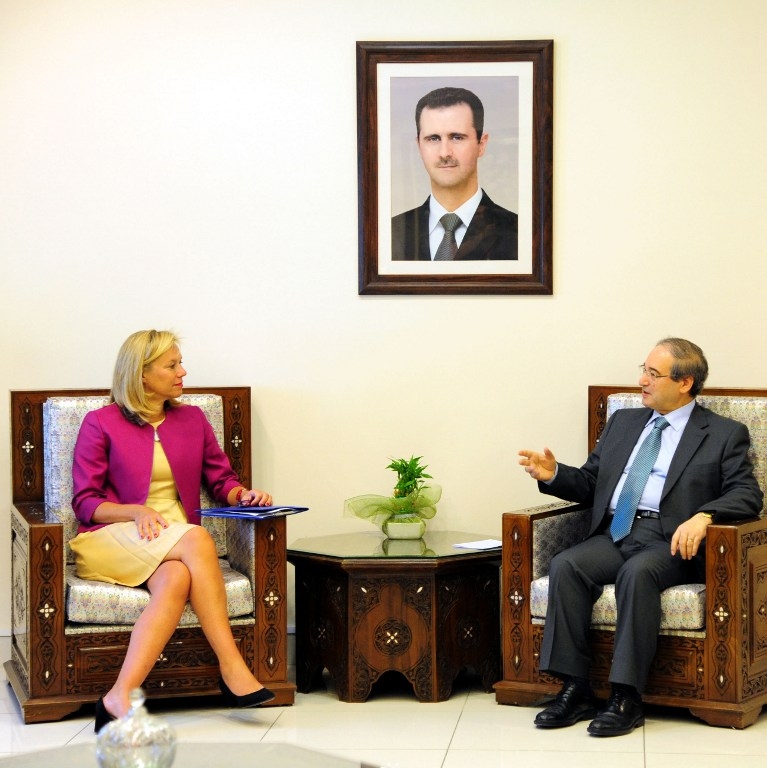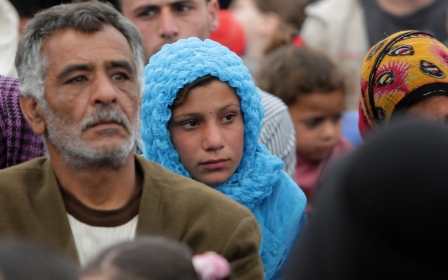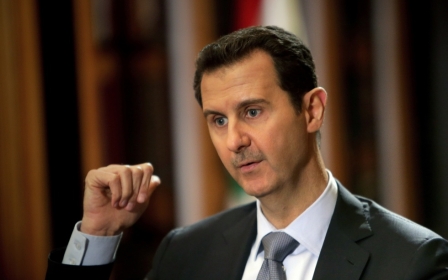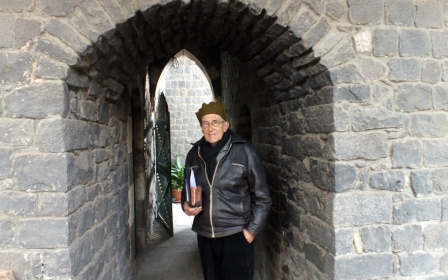Nearly 8 percent of Syrian chemical weapons remain as deadline passes

Syria still holds nearly 8 percent of its chemical weapons arsenal as the deadline expired Sunday for it to be handed over, the task force charged with the operation said.
"We are talking of the remaining 7.8 percent chemical weapon material that is currently still in country in one particular site," Sigrid Kaag, head of the combined Organisation for the Prohibition of Chemical Weapons-UN task team, told a news conference on Sunday.
Damascus needs to "acquit itself of its commitments," Kaag said, adding that there has been "very constructive cooperation."
Under a US-Russian deal negotiated last year, Syria signed up to the Chemical Weapons Convention and agreed to hand over its entire chemical weapons arsenal. A timeline following the removal of Syria's arsenal over the past months can be found here.
The deal was hammered out after the United States threatened military action against Damascus in response to a deadly chemical weapons attack just east of the capital in Ghouta, an agricultural area, that reportedly killed some 1,400 people.
New MEE newsletter: Jerusalem Dispatch
Sign up to get the latest insights and analysis on Israel-Palestine, alongside Turkey Unpacked and other MEE newsletters
Activists and much of the international community blamed the attack on the regime, although it denied responsibility.
Damascus has pledged to have all of its stockpile removed from the war-ravaged country by Sunday and the weapons are due to be destroyed by June 30. But it has regularly missed deadlines in the process, blaming the security situation in the country, which has been ravaged by a brutal civil war that has killed more than 150,000 people.
Syria declared around 700 tonnes of the most dangerous chemicals and 500 tonnes of less dangerous precursor chemicals.
Disagreements persist over how its chemical production sites should be destroyed. Damascus wants to seal the sites, which it says have already been rendered unusable, while Western countries want them completely destroyed, fearing that they may be used in future for chemical purposes.
There are also questions over alleged attacks involving the use of chlorine gas in Syria in recent weeks. The regime says a jihadist group, Al-Nusra Front, used the chemical in an attack on the rebel-held town of Kafr Zita, but the opposition blames the government for the attack.
The competing claims have raised concern in the United Nations, with some Security Council members calling for a probe into the allegations.
Meanwhile, the Syrian regime killed 66 people including women and children in offensives in several cities across the country on Saturday, activists said.
Assad forces killed 30 people in Aleppo, 13 Idlib and Damascus each, four in Hama, four in Daraa, two in Homs and one in Latakia, according to the London-based Syrian Network for Human Rights, which tracks civilian and dissident casualties.
At the same time, Syria's official news agency SANA reported that security forces seized two opposition-held districts in Aleppo.
The Syrian army killed a number of opposition fighters in operations in Homs, Daraa and Qamishli, the agency said.
Syria has been gripped by almost constant fighting since President Bashar al-Assad's regime responded to anti-government protests in March 2011 with a violent crackdown, sparking a conflict which has spiraled into a civil war that has claimed more than 100,000 lives so far.
Middle East Eye delivers independent and unrivalled coverage and analysis of the Middle East, North Africa and beyond. To learn more about republishing this content and the associated fees, please fill out this form. More about MEE can be found here.




